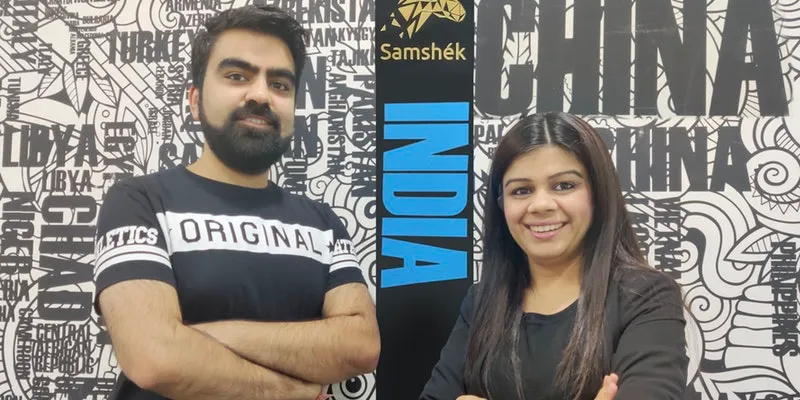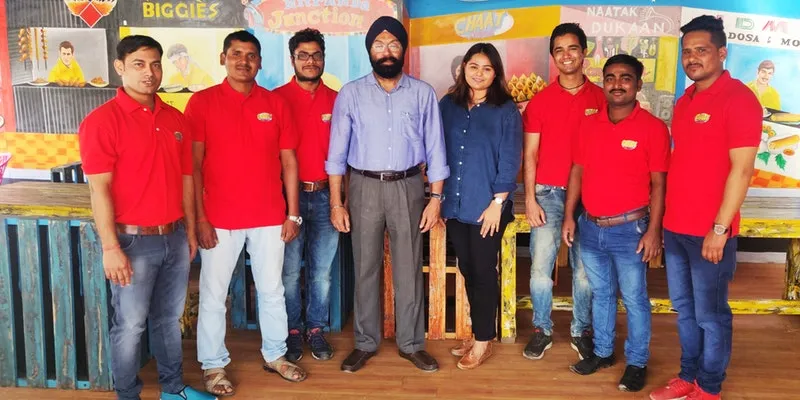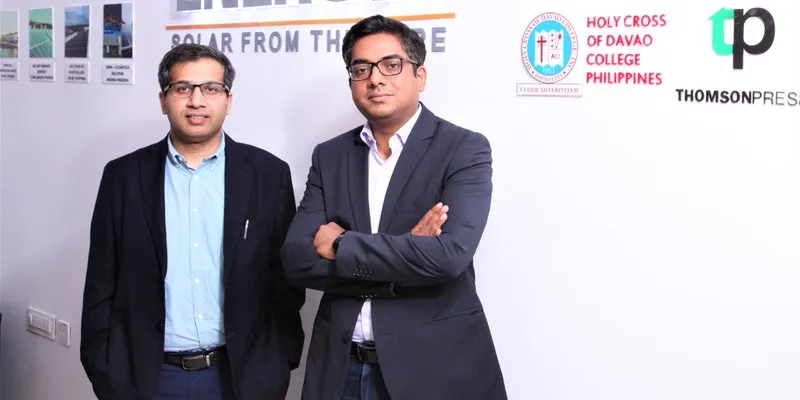From Make in India products to giving style and comfort: top SMB stories of the week
This week, SMBStory brings to you the stories of Indian brands that are giving trending style to its customers besides giving comfort

Keeping pace with the trending style besides giving comfort to the customers is the prime objective of entrepreneurs. This week, SMBStory has mapped the journey of businesses that are winning their customers’ hearts.
Liberty Shoes

Anupam Bansal, Managing Director, Liberty Shoes
India is the second-largest producer of footwear after China, accounting for 13 percent of global footwear production, according to an MSME report. The footwear industry also generates maximum employment opportunities, especially for the weaker sections, and therefore is an important part of the Indian economy.
But just a few decades ago, the scenario was very different in India. People were more inclined towards international brands, and trusted more in products made overseas.
During this time, and a few years after India got independence from the British Raj, Dharam Pal Gupta, Purshotam Das Gupta, and Rajkumar Bansal joined hands to launch a domestic footwear company in 1955 with a vision to reduce dominance on the imports, and rely on the ‘Make in India’ footwear. They started a 500 sq. ft shop in Karnal, Haryana, and called it Pal Boot House.
The founders changed the name from Pal Boot House to Liberty Shoes keeping their vision aligned to liberate Indians from foreign dominance.
What started by manufacturing four pairs a day in 1955, today Liberty Shoes makes 50,000 pairs each day, and is recording an annual turnover of Rs 700 crore.
Churchill & Company

Sagar Sarin (Left) and Abhishek Chopra (Right), Co-founders of Churchill & Company
The first thought that perhaps comes to one’s mind when one hears the name of Churchill & Company is whether it is a British brand, or whether it has any connection with former Prime Minister of Britain, Winston Churchill?
But Churchill & Company is a brand that has its roots in India. Punjab-based Churchill & Company was founded in 2017 by two young entrepreneurs Abhishek Chopra (32) and Sagar Sarin (28). Though relatively new, it is all set to compete in the crowded men’s footwear market in India, which has the likes of Zara and Woodland.
The idea behind launching the brand was to manufacture stylish and comfortable shoes at affordable prices. Abhishek saw a gap in the market that compelled him to launch a footwear brand that reaches an equilibrium where the three aspects meet. He says,
“There are only a few options available in the premium men’s footwear sector. Some of the biggest brands are of phenomenal quality but do not do justice to the Indian market in terms of pricing.”
This led to the conceptualisation of the brand.
Samshék

Abhishek Bajaj and Samiksha Bajaj, Cofounders, Samshék
When out for shopping, it is a big hassle for women to get hands-on a perfectly sized outfit. Handpicking each dress and pondering if it would have a particular neck shape, sleeve type, or length is always disheartening.
Seeing this huge gap, brother-sister duo Samiksha Bajaj and Abhishek Bajaj founded Samshék in 2015, one of India’s first fashion-tech company, based out of New Delhi.
In an interaction with SMBStory, Samiksha says,
“After completing my course, I worked with London Fashion Week. What I realised is that the problem everywhere is the same. Women always face difficulty finding the right size and desirable design. I heard about body scanners and customisation options in London and thought to discuss it with Abhishek if we can do something about it.”
Thus, Samshék was born on a phone call from London to Washington as both Samiskha and Abhishek got aligned with the concept of bringing forth fashion stores that offer digital personalisation of outfits at both platforms -- retail and online.
Samshék claims it is one of the first companies that effectively combines technology and fashion to solve the two major issues of the garment industry - sizing and sustainability.
At Samshék, measurements are taken using a 3D body scanner that eliminates the retail sizing standards and accepting personalised measurement system to deliver the accurate fit in each garment.
Other SMBStories of the week:
Mireya Foods

Team at Chaat Street
For many of us, chaats are associated with nostalgia and fun. Whether it’s the old street corner where you used to get the best gol gappas, or the hole in the wall restaurant that makes the best pav bhaji, each city and region has its own famous food joints.
This was something Aakanksha Chaudhary would often miss – her love for spicy and tangy Indian food. After completing her doctorate in Material Sciences from IISc, Bengaluru, Aakanksha was all set to get into research. However, not finding a suitable job profile in the market forced her to change tracks. Being upset by the turn of events along with the desire to do something of her own, Aakanksha decided to look at something she loved - food.
She setup Mireya Foods, under the brand name Chaat Street, in 2017 in Bengaluru. From earnings of Rs 100 on their first day, the brand is now seeing a revenue of Rs 5 crore. It has seven stores and one central kitchen in Bengaluru at present, and has an annual turnover of Rs 5 crore. The store’s EBITDA is pegged at 25 percent.
GreenDesk

Himanshu Agarwal, Founder & CEO, GreenDesk
Himanshu Agarwal was staying with his flat-mates in Gurugram and buying groceries always seemed a task. He soon noticed a huge gap in the prices of vegetables available online and offline.
He saw several companies like Grofers and Bigbasket emerging in the B2C space. He realised that there were very few players in the B2B space except for the likes of Jumbotail, JumboGrocery, and EZKirana. He decided to study the vegetable supply chain to understand the reason behind the huge difference in prices on three different platforms.
In October 2016, this culminated in the launch of GreenDesk, a Jaipur-based B2B grocery platform. The local mandis were the suppliers for GreenDesk, initially. As the team dug deeper, it started sourcing vegetables directly from the farmers.
Today, the business has tied up with more than 50 channel partners to supply groceries. It has 60 clients across hospitals, cafes, and restaurants, and receives 1,000 orders per month.
Jiva Ayurveda

Dr Pratap Chauhan, Director, Jiva Ayurveda
Shri Satya Narayana Dasa, Rishi Pal Chauhan, and Partap Singh Chauhan, three brothers, spent their childhood in natural surroundings.
Shri Satya Narayana Das, Director of Jiva Institute, the educational arm of the Jiva Group, went to IIT-Delhi and bagged a well-paying job in the US. However, he saw that many people were facing depression and were unable to combat lifestyle challenges.
This led him to renounce the world and move to Vrindavan. Seeing his elder brother adopt such a life, Partap Chauhan also wondered what his mission in life was. He decided to find answers in Ayurveda, and took up a course in the subject. The challenges of taking up such a niche subject were plenty. Chauhan says,
“Nobody was fond of Ayurveda in those times; not students or teachers. The general perspective was that people who didn’t get admission in a course in allopathy used to opt for Ayurveda courses.”
But he decided to choose the road less travelled and build a career in Ayurveda.
SunSource

Founders of SunSource Energy
One thing that all Indians can relate to are the summer vacations while growing up, mostly plagued with frequent power cuts, melted ice creams in the freezer, and fashioning makeshift fans out of everything at an arm’s distance - newspapers, cardboard pieces, and sometimes even handkerchiefs.
While diesel generators were available, the emissions from these generators were never desirable. The Indian government then announced the launch of the National Solar Mission in 2010, and this finally signalled innovation in the solar space.
Kushagra Nandan and Adarsh Das saw this as an opportunity to take the entrepreneurial plunge.
Graduates from University of Massachusetts, the duo returned from the US and founded SunSource Energy in January 2010. SunSource is a provider of solar-based energy and storage solutions to commercial, industrial, and institutional clients across seven countries. Starting its operations from Adarsh’s living room in Gurugram, SunSource later moved its headquarters to Noida.







